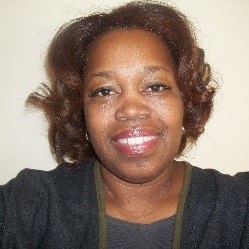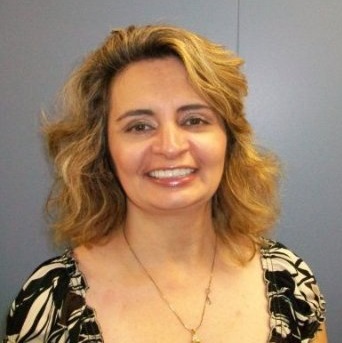How to Apply
Please choose your role below, log in (to verify your membership), and continue for more information and the opportunity to enroll.


General
Q1. What is Mentoring?
A1. Mentoring in the PMI-Atlanta Mentorship Program is the volunteer act of helping someone to improve their project management skills. Mentors are facilitators and catalysts in a process of discovery and insight. In a learning partnership, the Mentor’s role is to “guide on the side” rather than be “the expert with the answers”. Instead of being Mentor driven, with the Mentor taking full responsibility for the Mentee’s learning, the Mentee learns to share responsibility for the learning, setting priorities, learning, and resources and becomes increasingly self-directed.
- The Mentoring program is not a job placement or resume writing program.
- The Mentoring program is not recommended as a PMP study group. For information about PMI Atlanta Study groups, contact PMP Study Group Program Manager.
- Under no circumstances should a mentor/mentee enter into a mentoring partnership for financial gain or with the intent to sell a product or service.
Q2. Who is eligible to be a Mentee?
A2. PMI Atlanta Chapter members in good standing. Typically, a Mentee is somebody who is in or seeking the role of a project manager, program manager, project coordinator or project scheduler and is looking to enhance skills in a particular Knowledge Area or learn more about project management within a particular industry.
Q3. Who is eligible to be a Mentor?
A3. PMI Atlanta Chapter members in good standing. Typically, a Mentor will be:
• Be considered an experienced project manager by his/her peers
• Have 5+ years of experience as a project manager or project related roles
• Have a PMP designation
Q4. Are only professionals from specific industries allowed to participate?
A4. All industries are welcome.
Q5. How much time is required for the Mentor?
A5. The Mentor will spend a minimum of 2 hours with the Mentee per month. This can be face to face or over the phone. This is a minimum 6-hour time commitment plus attendance at the 2-hour Kick-Off Meeting.
Q6. How much time is required for the Mentee?
A6. The Mentee will spend a minimum of 2 hours with the Mentee per month. This can be face to face or over the phone. This is a minimum 6-hour time commitment plus attendance at the 2-hour Kick-Off Meeting.
Q7. How long is the program?
A7. The Mentor/Mentee partnership will last approximately 3 months (with a minimum of 8 hours: a 2 hour kick off meeting plus 6 hours within the 3-month period). If you wish to continue in the formal Mentoring program at the end of this period you must re-apply. The Mentor/Mentee can continue informally but will not include any PMI Atlanta involvement.
Q8. How do I apply to the program?
A8. Anyone interest in being considered for the program must be a member of the PMI Atlanta Chapter and needs to complete the following:
Q9. Why is there a Kick-Off session?
A9. Best practices indicate a successful Mentoring program is based on:
- A good Mentor/Mentee match
- A Kick-Off Meeting to provide guidelines and set-up expectations for Mentors and Mentees
PDUs
Q10. As a PMP, how many PDU’s (Professional Development Units) will I earn?
A10. Both the Mentor and/or the Mentee, if they are a PMP, can each earn PDUs as follows:
| Activity |
PMP Mentor |
PMP Mentee |
PDU Type |
| Kick-Off Meeting: Meet and Greet, Working Agreement |
2 |
2 |
Activity: Organization Meeting
Category: Education |
| Mentoring for 3 months @ 2 hours minimum per month |
6 |
6 |
Mentor
Activity: Share Knowledge, Category: Giving Back.
Mentee
Activity: Informal Learning, Category: Education. |
| Total Mentoring PDU’s (maximum) |
8 |
8 |
|
Q11. I am working on obtaining my PMP designation, can I claim Mentoring as part of the required 35 contact hours of Project Management Education towards my PMP qualifications?
A11. No, unfortunately, Mentoring programs do not qualify for the 35 contact hour requirement. This portion of the PMP Certification examination application is specifically focused on structured learning programs addressing specific PM knowledge areas exemplified by a classroom setting. A classroom setting specifically focuses this portion of the PMP Certification examination application on structured learning programs addressing specific PM knowledge areas exemplified.
Q12. If I obtain a PMP status during the Mentoring program, will I be eligible for PDUs?
A12. Due to the short duration of the program PDUs will be available to participants who have a PMP designation at the start of the program.
Q13. How do I get my PDUs?
A13. Upon completion of the Mentoring program you submit your PDUs through the normal PMI procedures (CCRS account).
Q14. What time is and is not considered eligible for PDU credits?
A14. The following activities are considered eligible for PDUs:
- Attendance at the Kick off Meeting
- Time spent together by both Mentor and Mentee
o Face to face
o Telephone conversations
The following activities are considered not eligible for PDU’s:
- Work (decided upon by Mentor/Mentee)
- E-mails
- Reading
- Travel
Q15. If I complete my contact time before the program ends, can I claim the PDU’s earlier?
A15. PDUs will only be awarded at the end of the program. See the next question.
Q16. To which category do the earned PDUs apply?
A16. PDUs earned during the Mentoring program for the Kick off Meeting are applied to Category: Education, Activity: Organization Meeting. PDUs from time spend in the mentoring partnership are applied as follows: for the Mentor: Category: Giving Back, Activity: Shared Knowledge; For the Mentee: Category: Education, Activity: Informal Learning.
Mentor/Mentee Matches
Q17. Can I continue my current Mentor/Mentee relationship for a second term?
A17. Due to the limited number of spots available, all interested parties must reapply to participate in the program. If the Mentor/Mentee relationship continues informally outside the program, a PMP should review his or her Mentor/Mentee activities to establish if additional PDUs can be claimed.
Q18. How many Mentor/Mentee partnerships are allowed in the program?
A18. At this time there is not a specific number of pairings targeted, but the group will work to accommodate as many pairings as possible. The number of partnerships is limited to the number of mentors that volunteer for the term.
Q19. How will the Mentor/Mentee pairs be chosen?
A19. Generally they will be chosen on a first come/first served, best match basis. However, the logistics of matching may mean that even if your application was #1 and no appropriate match was found then you would not be paired. The general concept for matching is experience, industry, professional specialization, Mentoring preferences, location proximity and a variety of less important considerations.
Q20. How many Mentees will be assigned to a Mentor?
A20. One Mentee will be assigned per one Mentor, unless there is a 'Group Mentor' offering for the term.
Q21. Who participates in ‘Group Mentoring’?
A21. The profile of a mentee candidate for group mentoring is someone with 'zero to less than 3 years' experience LEADING projects. In most cases, the person does not have their PMP. The person may know about Project Management from an intellectual perspective but not much in practice, or they want more fundamental information about Project Management from a day-to-day perspective. There will be one mentor with multiple mentees. The group will meet and examples of topics which may be covered are listed below. Each group mentoring session is a little different, so topics may vary.
- Overview of skills that are typically needed by anyone pursuing a new career as a PM or developing their PM career
- Aspects of certification (CAPM/PMP) including maintaining a PMP certification (but this is not a PMP Prep class)
- How project Management helps organizations improve
- Tips/tricks for interviewing (but not job search or resume building)
- Handling challenging situations/stakeholders
- Aspects of becoming/maintaining a PMP certification (but this is not a PMP Prep class)
- Disciplines of and additional helpful skills for PM's
o Vendor Negotiations/Vendor Management
o Managing Project Resources
o Project communications
o Handling challenging situations/stakeholders
o PM Tools (discussion and good uses of MS Project vs Excel, what is a PPM? Word, PowerPoint, E-mail)
Q22. What if my Mentor/Mentee and I don’t get along?
A22. It is expected that both Mentors & Mentees will put forth their best efforts to create a positive relationship. If these efforts are unsuccessful contact the Mentorship Program Manager.
 Humor is a vital management tool and everyone can do it. Even if you see yourself as a dead serious professional, you can find your own style of humor, and grow by baby steps. Yes, unfunny people can learn to be hilarious and heard, and still get good, quality things done in scope, time and budget.
Humor is a vital management tool and everyone can do it. Even if you see yourself as a dead serious professional, you can find your own style of humor, and grow by baby steps. Yes, unfunny people can learn to be hilarious and heard, and still get good, quality things done in scope, time and budget.

 Nagendra Roy, PMP, SAFe, CSM, ITIL, MBA, is Sr. Director at Aptude, Inc., a global IT consulting company. He has a Masters in Business Administration.
Nagendra Roy, PMP, SAFe, CSM, ITIL, MBA, is Sr. Director at Aptude, Inc., a global IT consulting company. He has a Masters in Business Administration. Selena Buchanan is a professor at Ohio Christian University (Adult & Graduate Studies, e.g., Business & Government). As a current member of the Project Management community, she serves dual roles as a Special Interest Financial Coordinator and as the Project Manager on the Operations team spearheading the PM in the AM/Airport. Selena financial expertizes stems from working closely with business owners for over ten years to help resolve financial issues and problems.
Selena Buchanan is a professor at Ohio Christian University (Adult & Graduate Studies, e.g., Business & Government). As a current member of the Project Management community, she serves dual roles as a Special Interest Financial Coordinator and as the Project Manager on the Operations team spearheading the PM in the AM/Airport. Selena financial expertizes stems from working closely with business owners for over ten years to help resolve financial issues and problems. Nazanin Aslani, PMP, CSM (nickname Nazy) lived in Southern California before moving to Atlanta.
Nazanin Aslani, PMP, CSM (nickname Nazy) lived in Southern California before moving to Atlanta.
